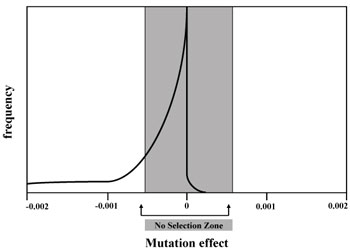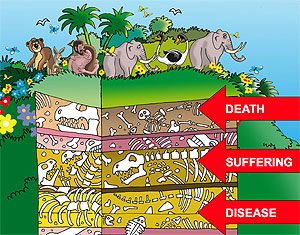 I have just recently finished reading the book, "The Covenant of God and the Children of Believers: Sovereign Grace in the Covenant" by Prof. David J. Engelsma of the Protestant Reformed Churches. This photograph shows a Duplo wall built by my 16-month old nephew just after Christmas. It reminds me of how important and close to our hearts this issue regarding our children is. In this book, Prof. Engelsma wonderfully and comprehensively accomplishes the following:
I have just recently finished reading the book, "The Covenant of God and the Children of Believers: Sovereign Grace in the Covenant" by Prof. David J. Engelsma of the Protestant Reformed Churches. This photograph shows a Duplo wall built by my 16-month old nephew just after Christmas. It reminds me of how important and close to our hearts this issue regarding our children is. In this book, Prof. Engelsma wonderfully and comprehensively accomplishes the following:- A biblical defence and explanation of the position of the Protestant Reformed Churches regarding infant baptism, covenant children and the covenant of God, including their various practical implications.
- A biblical repudiation of three false notions regarding these subjects.
- A biblical examination of the current controversy regarding justification (including the unopposed propagation of the doctrine of justification by works) in various Reformed churches, tracing the root of the issue to an erroneous doctrine of a conditional covenant (the same as that of Klaas Schilder and the "liberated" Reformed Churches against which the Protestant Reformed Churches had a massive internal struggle) which has now been developed into what Prof. Engelsma calls covenantal universalism.
- A biblical refutation of a conditional covenant and defense of the covenantal particularism of the Protestant Reformed Churches, the Reformed Creeds (including the Westminster Standards), and orthodox Reformed theologians of history.
 In the first place, Prof. Engelsma puts forward the biblical understanding of the children of believers and infant baptism in contrast with other views which I would probably summarise as "Anti-paedobaptist", "Presumptive Unregeneration", and "Covenantal-Arminian". Prof. Engelsma often refers to key texts for the Protestant Reformed view like Gen 17:7 and Rom 9:6-8. He gladly accepts the charge that this is an "election theology" of the covenant, since this has always been the hallmark of orthodox Reformed theology.
In the first place, Prof. Engelsma puts forward the biblical understanding of the children of believers and infant baptism in contrast with other views which I would probably summarise as "Anti-paedobaptist", "Presumptive Unregeneration", and "Covenantal-Arminian". Prof. Engelsma often refers to key texts for the Protestant Reformed view like Gen 17:7 and Rom 9:6-8. He gladly accepts the charge that this is an "election theology" of the covenant, since this has always been the hallmark of orthodox Reformed theology.This is that the children of believers are in the covenant of God unconditionally with all the blessings of salvation, even being regenerated usually early in childhood, yet not head-for-head. Not all the children of the flesh are children of the promise. There are Esau's among the Jacob's. Yet it is election that determines the approach towards the rearing of covenant children (which is part of why they all ought to be baptised). I found it especially helpful when Prof. Engelsma likened this approach to how the Reformed minister approaches the congregation (such as Paul in 1Co 1:2, 3). He knows that there are most likely hypocrites among them, but they are still collectively the congregation of the saints. Engelsma rightly applied the parable of the wheat field to this (Mat 13:24-30). He also called attention to the importance of church discipline culminating in excommunication, for those children who eventually grow up to manifest themselves as disobedient, wicked and unbelieving.
The "Anti-paedobaptist" view is simply one that seems to either utterly disregard all the promises of God to our children, or believe that the approach taken in rearing children of believers ought to be based upon some kind of conversion experience later on in the child's life, and that only on this basis are the children allowed to be baptised and included in the church. Against this Prof. Engelsma biblically defends the assertion of the 34th Article of the Belgic Confession where it says that "we detest the error of the Anabaptists, who are not content with the one only baptism they have once received, and moreover condemn the baptism of infants of believers."
The "Presumptive Unregeneration" position is inconsistent in that it a view exactly the same as the one above, but nevertheless insists on the baptism of the infant children of believers. This then negates the significance of baptism, and treats all the children of believers without exception (unless and until there is some conversion experience etc) as "little vipers". Prof. Engelsma identifies this unbiblical and harmful notion with Jonathan Edwards (despite his other valuable work) and the Revivalism of the "Great Awakening", and further defends the biblical approach to covenant children. Here he specifically notes the work of Herman Hoeksema, "Believers and Their Seed" for further reading, and explains the Protestant Reformed position as "promised regeneration" according to election, not "presumptive/presupposed regeneration".
Finally the "Covenantal-Arminian" view is that of a repudiation of any governing of the application of the covenant by election and the affirmation of a decidedly Arminian-style conditional covenant. This is the idea that God promises all the blessings of the covenant to all children of believers head-for-head on the basis that Christ has died for them all without exception, yet the efficacy of this promise relies on the work of the child - faith and obedience. Prof. Engelsma also explains that this idea also considers that this conditional promise of God for all to be grace in itself - even if it is rejected. Here we have all the errors of the supposedly "well-meant offer" and the 1924 synodical decision of the Christian Reformed Church on the "three points of common grace".
At this point David J. Engelsma rejoices in the charge of an "election theology" of the covenant in contrast to the doctrine of a conditional covenant which is in essence (within the sphere of the covenant): universal (losable) election, universal (losable) redemption, universal (resistible) grace, and a denial of limited atonement. This leads into a detailed discussion of the contemporary development of a conditional covenant. Engelsma pinpoints the root of the heresy of justification by works within Reformed churches as the commitment to a conditional covenant. He identifies this as covenantal universalism in which the atonement of Jesus Christ is ineffective and the grace of God is losable and conditional.
Prof. Engelsma comprehensively proves that these heresies are the necessary and logical outworking of a conditional covenant, and that all of this is totally opposed to the plain teaching of Scripture. Especially good is his biblical explanation of Hebrews 10 as opposed to that of the covenant-universalists, and his application of the Protestant Reformed understanding of the covenant to correct the error at its heart and to give a consistent biblical framework for understanding sovereign grace in the covenant according to unconditional election and reprobation.
He again biblically establishes the Protestant Reformed doctrine of the unconditional covenant with the elect only as the only consistent and biblical understanding of the covenant of God with the children of believers, and the only way to counter this new attack against the Gospel of grace, and the only way to remain true to the historical Reformed system of doctrine as expressed in the Three Forms of Unity and the Westminster Standards. I was also greatly encouraged to see Prof. Engelsma's courage in comprehensively naming the heretics responsible for propagating these false teachings by name, as the Apostle Paul does in his epistles (1Ti 1:20, 2Ti 2:17-18, 2Ti 4:14-15, etc).
This book presents a solid biblical defense of covenant particularism, its importance especially in light of the current heresies being propagated on the basis of a conditional covenant, and its application for Reformed believers and their children and the manner of their rearing and treatment in the church. There is also a chapter providing a detailed and biblical explanation of the Canons of Dordt, Head 1, Article 17: "No Reason to Doubt", regarding the comfort of godly parents at the death of an infant child on the same basis as the comfort of the church on the death of any of their members and the promise of God.
For all of its many qualities and virtues, this book definitely and unhesitatingly receives my seal of approval:









